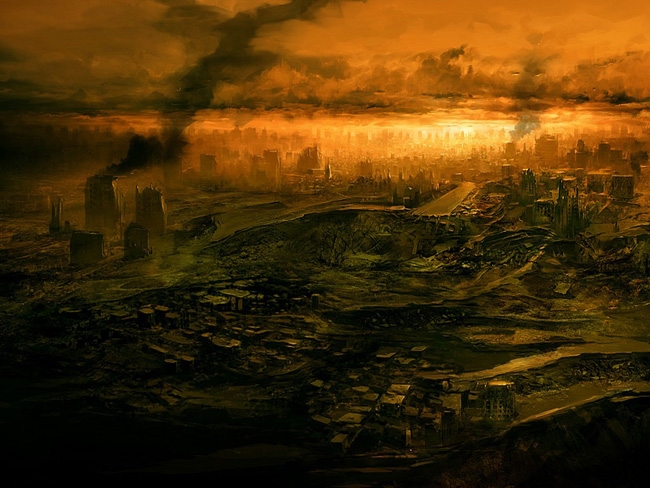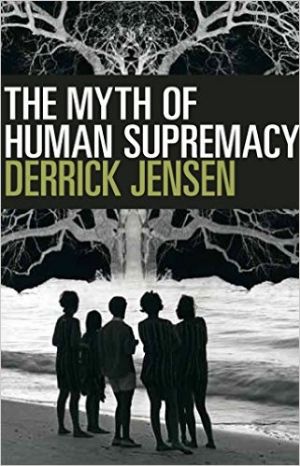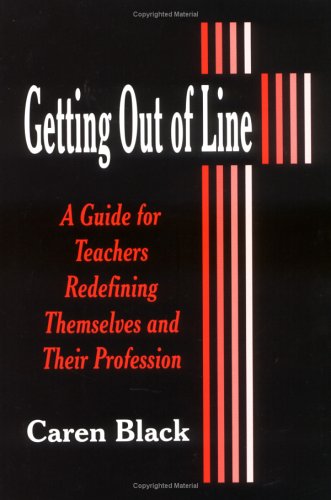Several years ago I wrote a Hip Fish column applying the biblical proverb, “There is a way that seems right, but the end thereof is death” to industrial civilization. Now, as commitment to the present urban high tech civilization continues unabated, we stand at the precipice of mass annihilation.
We continue to kill some 200 species of our once fecund earth per day, as we cut down rain and old growth forests, converting them to industrial commodities. As we continue pumping planet warming gases into the air and acidifying the seas, we begin to witness the earth’s sixth great extinction. While other industrial countries like Iceland and Germany have been moving toward sustainability, US leadership either drags its feet, as did the Obama administration, or voices outright denial, as the Republican Party and its leader, President Trump, do in proclaiming human caused climate change a hoax. Amazingly our leaders remain more committed to the specious profitability of business as usual than to the preservation of the planetary biosphere.
While such “leaders” live schizophrenically in a self-created world, activists who would save the actual earth write, speak, teach and demonstrate in ever greater numbers to bring about the global paradigm shift necessary to keep life going, albeit in diminished fecundity. Prophet of the deep ecology movement, Derrick Jensen, author of several books challenging the viability of industrial civilization, including the apocalyptic Endgame, now offers his most unsparing indictment of the anthropocentric world. In The Myth of Human Supremacy, Jensen challenges humanity’s chief conceit, the notion that we are the only intelligent life form. In the tradition of other intellectuals who have questioned the dominant human paradigm, Jensen depicts the dire effects of exploiting all other species in order to remake the earth in our own warped, self-aggrandizing image.
Jensen draws from Lewis Mumford’s idea, expounded in The Myth of the Machine, that human societies beginning with the centralized ancient kingdoms, have exchanged peaceful, egalitarian democratic technics for class based authoritarian ones committed to war and accumulation. Reaching further back in history than critics of the scientific technological paradigm, which began in the Renaissance, Jensen traces the origins of human misuse of the earth to the invention of the plow and development of agriculture. Unlike the hunter gatherer cultures of Indigenous peoples, who practiced horticulture, growing diverse vegetables in meadows, while hunting game in the forest, agriculturalists cut down forests to grow large fields of grain. Agriculture, together with animal husbandry, brought about centralized societies, usually monarchies based on accumulation, and expansion based on war. It was such large scale agriculture that began the degradation of natural ecologies.
Like Mumford, Theodore Roszak, Jacques Ellul and other critics of technological society, Jensen rejects the idea of progress. And in the tradition of ecological pioneers like Aldo Leopold and Rachel Carson, Jensen looks closely at the complex web of millions of species of untrammeled life forms that made the earth so wonderfully abundant. His understanding of the sentience and intelligent cooperation of all plant, as well as animal life forms parallels the vision of mystics representing widely diverse spiritualties. Mystical experience intuits the spirit of God coursing through all life. As Walt Whitman put it, the whole universe is contained in a leaf of grass, and thus he titled his collection of nature poems, “Leaves of Grass.”
Jensen emphasizes that just because animal or plant species communicate with one another differently from the way humans do, that is they have a different language or mode of communication, does not mean they are not intelligent. A tree whose leaves are being eaten by caterpillars, for example, will emit a chemical warning a neighboring tree to thicken her leaves. This is just one of a multitude of ways in which species of all kinds, from large mammals like elephants and whales to microbes like bacteria or even tinier viruses, communicate and cooperate with one another. Like the Russian earth scientist, Kropotkin, as well as Darwin, Jensen sees far more cooperation than competition in nature. He marvels at the awesome complexity of life in an old growth forest. And he directs a withering blast at the humans viewing everything as commodity who would clear cut such magnificent ancient forests, only to replace them with single species tree farms grown to be cut. Timber companies and most loggers are blind and deaf (insentient) to all the life of the old growth forest, viewing trees only in terms of board feet and profits. And a similarly commodity minded Bureau of Land Management rounds up and murders wild horses and burros on public land Congress had previously set aside for them, so as to lease it to the cattle industry.
Like anyone who actually reflects on the looming ecocide which money fixated humans are causing, Jensen wonders how people cannot imagine living without electricity or computers and all the gadgetry of contemporary life. Like many of the romantic writers who questioned the real value of machine technology, Jensen is aghast at the one-dimensional world view of a self-absorbed species who would kill the oceans and warm the earth to a point where all life perishes. But then this is the same species that invented and contemplates making “usable” nuclear weapons.

Author
Stephen Berk, PhD is Emeritus Professor of History, California State University Long Beach, author of two books on US History, and political columnist for a Pacific Northwest monthly newspaper.








